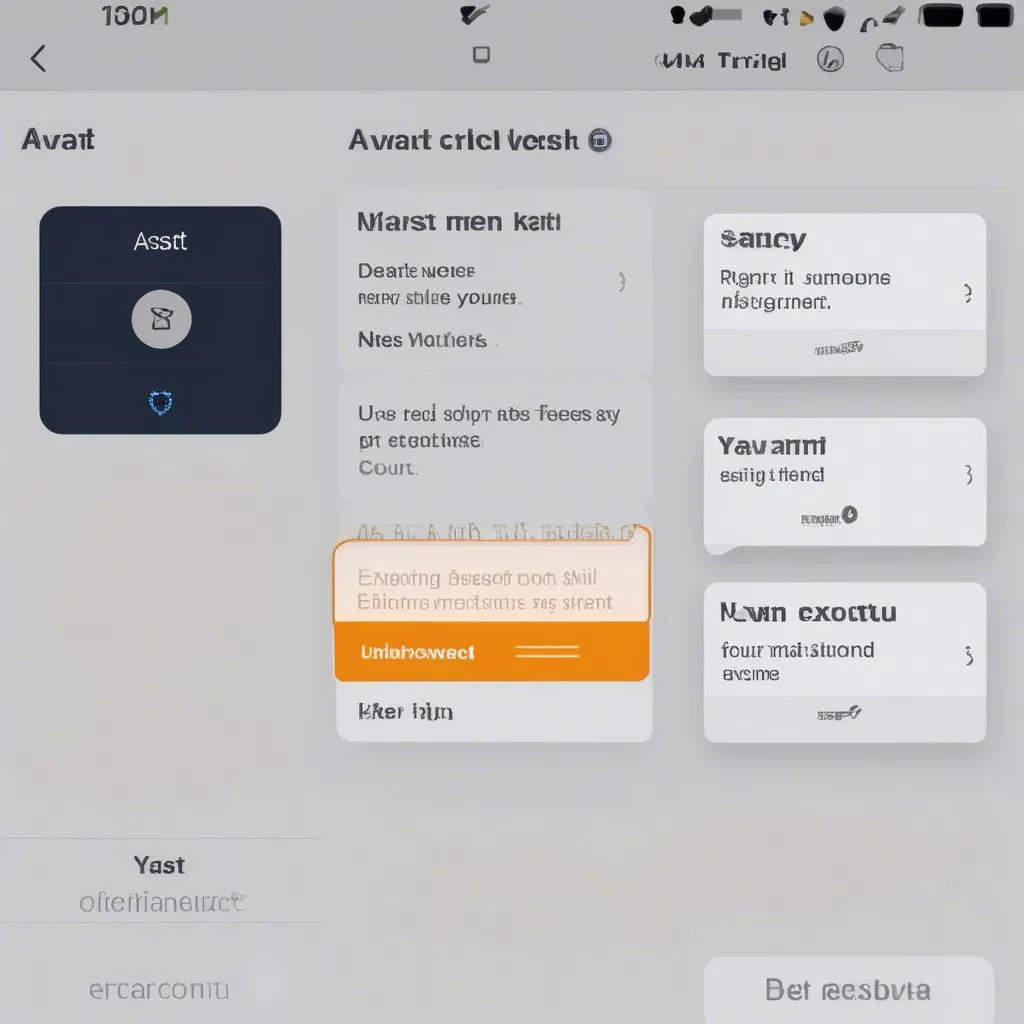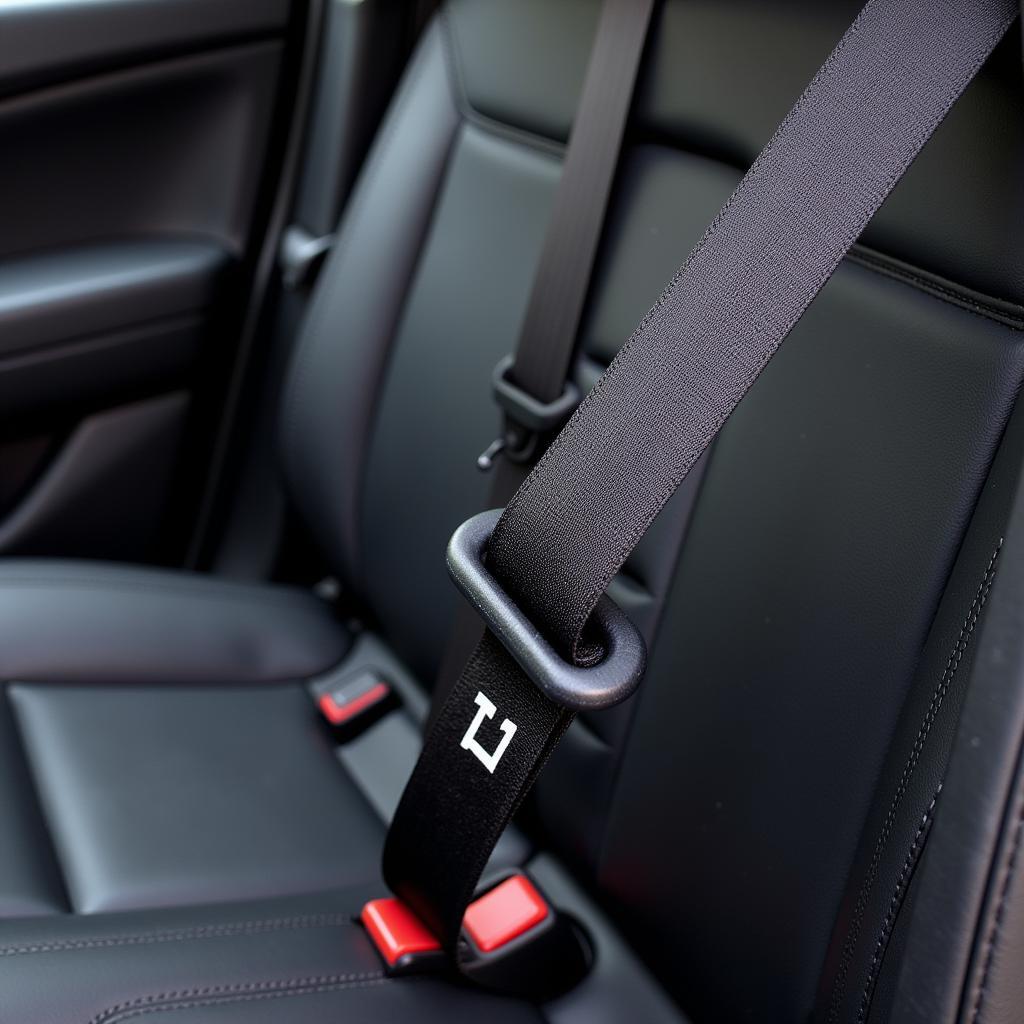You’re driving your Hyundai Veracruz when suddenly, you notice the parking brake warning light is on. Even though the parking brake is disengaged, the light refuses to go off. This can be frustrating and concerning. This comprehensive guide will walk you through the common causes of this issue and how to resolve them, getting you back on the road with peace of mind.
Common Reasons Your Parking Brake Light Won’t Turn Off
While a stuck parking brake light can be alarming, the cause is usually simple and easy to fix. Here are the most likely culprits:
1. Low Brake Fluid
The most common reason for the parking brake warning light to stay on is low brake fluid. Your braking system relies on hydraulic pressure to function properly, and low brake fluid levels mean reduced pressure, triggering the warning light.
How to check your brake fluid:
- Locate the brake fluid reservoir under the hood. Consult your owner’s manual for the exact location.
- Check the fluid level. The reservoir will have “Min” and “Max” markings. If the fluid level is below the “Min” mark, you need to add more.
- Important: If you need to add brake fluid, use the correct type specified in your owner’s manual. Using the wrong type of fluid can damage your braking system.
2. Faulty Parking Brake Switch
The parking brake switch is responsible for turning the warning light on and off when you engage or disengage the parking brake. Over time, this switch can wear out, become faulty, or get stuck, leading to a constantly illuminated warning light.
How to diagnose a faulty parking brake switch:
- Locate the parking brake switch. It’s usually located under the dashboard near the parking brake lever.
- With the parking brake disengaged, try manipulating the switch up and down. If the light flickers or turns off, the switch is likely faulty and needs replacement.
3. Worn-Out Brake Pads
Believe it or not, worn-out brake pads can also trigger the parking brake warning light. Many vehicles have a sensor in the brake pad system that illuminates the warning light when the pads wear down to a certain level, indicating the need for replacement.
How to check your brake pads:
- Look at your brake pads through the spaces between the wheel spokes. You should be able to see the brake pad sandwiched between the brake caliper and the rotor.
- Check the thickness of the brake pad material. If it’s less than 1/4 inch thick, it’s time for new brake pads.
4. Electrical Issue
In rare cases, a short circuit or wiring problem in the parking brake system can cause the warning light to stay on. This can be more challenging to diagnose and often requires the expertise of a qualified mechanic.
When to suspect an electrical issue:
- If you’ve ruled out the other common causes.
- If you notice other electrical problems with your vehicle.
“When diagnosing electrical issues in a vehicle’s braking system, it’s crucial to have the right tools and expertise. Attempting repairs without proper knowledge can be dangerous.” – John Smith, ASE Certified Master Technician.
What to Do if the Parking Brake Light Stays On
If your Hyundai Veracruz’s parking brake warning light stays on, don’t ignore it. Follow these steps:
- Check the parking brake. Make sure it’s fully disengaged.
- Check the brake fluid level. If it’s low, add the correct type of brake fluid.
- Inspect the parking brake switch. If you suspect it’s faulty, try manipulating it to see if the light changes.
- Check your brake pads. If they’re worn down, replace them.
- If you’ve checked all of the above and the light is still on, it’s best to take your vehicle to a qualified mechanic to diagnose and fix the problem.
Conclusion
A persistent parking brake warning light in your Hyundai Veracruz shouldn’t be ignored. By understanding the common causes and following the troubleshooting steps outlined in this guide, you can often identify and address the issue yourself. However, if the problem persists or you’re unsure about any aspect of the diagnosis or repair, it’s always best to consult a qualified mechanic to ensure your safety and prevent potential damage to your vehicle.


